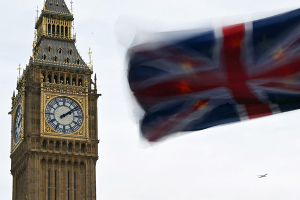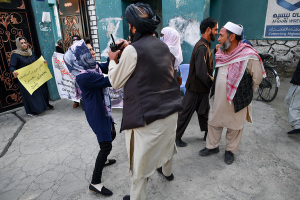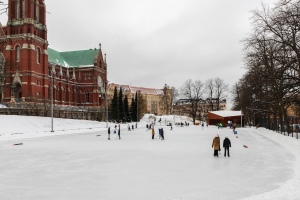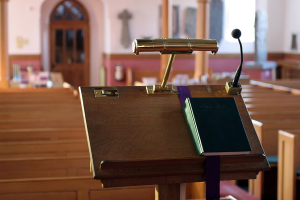Victims of religious oppression in Turkey reveal why Christian population is dwindling
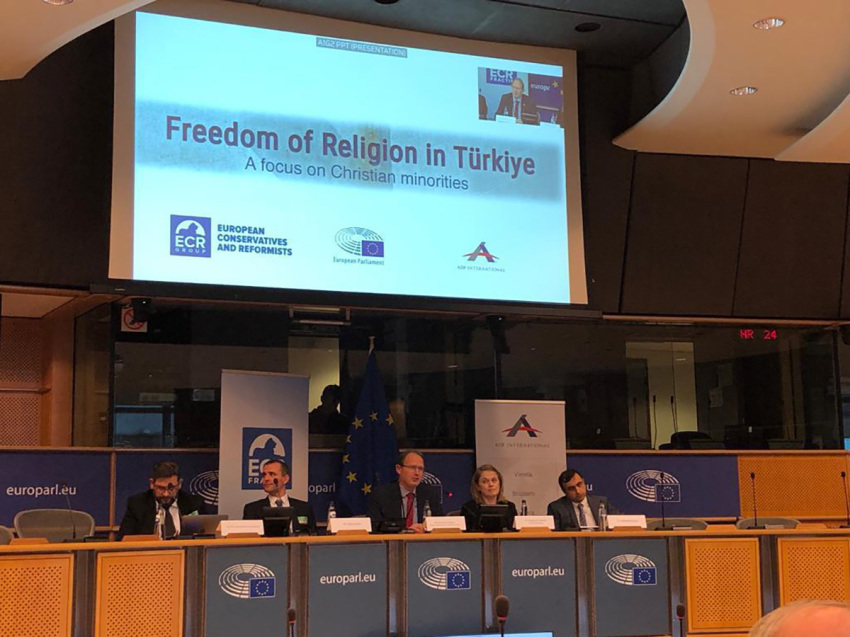
Victims of religious oppression in Turkey shared their stories at an event on religious freedom at the European Parliament where the speakers suggested that political and social atrocities in that country were behind the Christian population's decline from 20% to a mere 0.2% over the last century.
The victims highlighted atrocities against Christian minorities committed by the Turkish government and parts of society, according to the human rights group ADF International, which held the event this week in partnership with the group European Conservatives and Reformists.
Among those who testified at Wednesday’s event in Brussels, “Freedom of Religion in Türkiye,” was Mark Smith, a Christian missionary who was expelled from the country in 2020 after living there for over a decade.
“We love the country of Turkey and want to work for the good of its people. We are not a threat to the state, the country or the Turkish way of life,” Smith was quoted as saying.
Mark, with his wife, led a Turkish-speaking Evangelical church for 10 years before being banned from the country for “activities against Turkish state security.”
The Turkish government has expelled at least 60 foreign Christian missionaries and their families since 2020, according to the religious freedom group Open Doors, which says Christians in Turkey experience “incredible pressure from very strong — and increasing — religious nationalism” in the country.
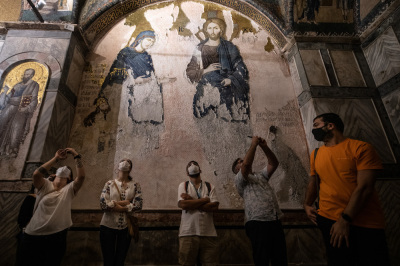
“Christians and other faith minorities are unable to exercise their right to freedom of religion,” commented Dr. Georgia du Plessis, legal officer for ADF International in Brussels.
“Christian missionaries are unable to return to the country they call home, the Ecumenical Patriarchate of the Orthodox Church has not been able to train clergy for 50 years, and religious sites are being violated without action taken from the government,” Plessis continued, adding, “These direct and egregious violations clearly indicate the demise of democracy in Turkey.”
Member of the European Parliament Bert-Jan Ruissen said Turkey has “restrictive government policies on religious practice for all religious communities other than non-Sunni Muslims.”
“We also see an increase in vandalism and violence against religious minorities and a government interfering in the internal affairs of religious communities,” continued Ruissen, who is from ECR Group.
“This contributes to a hostile environment where religious communities feel increasingly unsafe and this deserves our full attention,” he added.
The 2022 European Parliament Report on Turkey condemned “the oppression of religious and ethnic minorities” and expressed regret over the “continuously shrinking space” for them to “operate freely in Turkey.”
In its recent report, Open Doors says, “The government continues to target even foreign Christians in its borders, along with the foreign spouses of Turkish citizens.”
It’s not technically illegal for Muslims to convert to Christianity, but any Muslim who does decide to follow Jesus comes under immense strain from their families and communities, who often demand the convert return to Islam, it adds.
“These believers are sometimes forced to lead a double life and hide their conversion. Even Christians who did not convert from Islam are hardly regarded as full members of Turkish society and encounter all kinds of legal and bureaucratic obstructions.”
Last month, the U.K.-based group Christian Solidarity Worldwide called on the government of Turkey to investigate a claim that the country’s security officials offered to pay an ultranationalist “whatever he wanted” in return for assassinating church leaders.
In August, an ultranationalist man, identified only as Tolgahan A., confessed to Vedat Serin, a leader of the Salvation Church in the eastern city of Malatya, that members of Turkey’s Gendarmerie Intelligence and Anti-Terror Unit offered him “whatever he wanted” if he killed Serin and two other Christian leaders — former pastor Tim Stone and Pastor Ihsan Özbek, the chair of Kurtuluş Churches Association, CSW said in a statement at the time.
The man, allegedly connected to the Nationalist Movement Party, was given the addresses and photos of Serin and the others, Ahval News reported, adding that he was also given a gun and sent to the church with a friend. But when they saw a little boy playing with a computer inside, they left.
Turkey has a long history of Christian persecution, and its government still refuses to admit that the Ottoman Turks committed genocide of Christian Armenians in 1915.
Turkey is 99% Muslim, according to its own statistics. Although its constitution provides for freedom of religion, the government uses regulations that demand the registration of religious groups to make it more difficult to practice non-Islamic faiths. Hatred toward Christians and Jews in the country often leads to discrimination, stigmatization and attacks.
In July 2020, Turkish President Recep Tayyip Erdogan turned the Hagia Sophia, an ancient Christian cathedral, from a museum into a mosque, undoing its transformation in 1934 from a mosque to a cathedral.
















